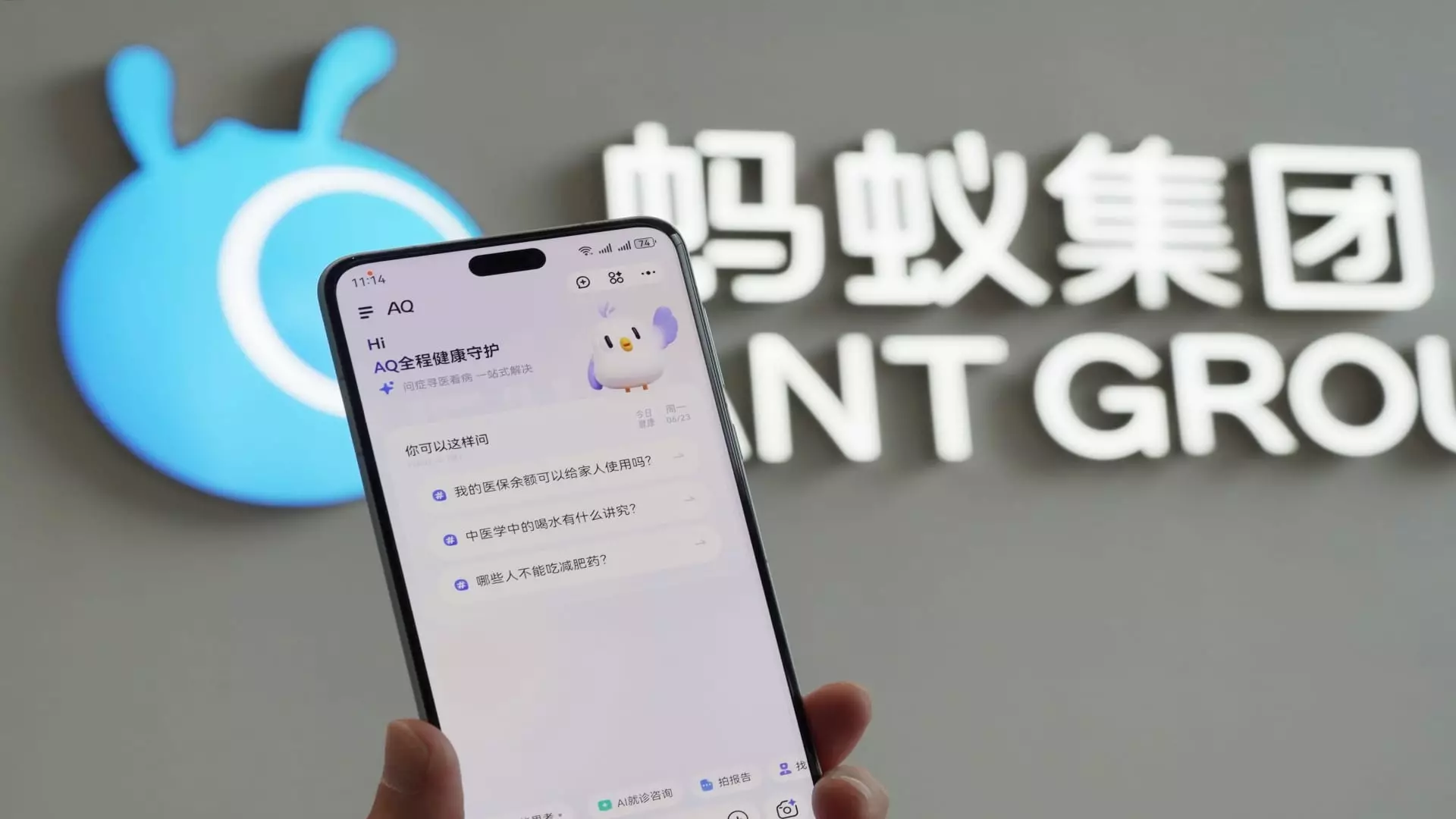In an age where technological advancements continually reshape our daily lives, Ant Group’s foray into healthcare signifies nothing short of a paradigm shift. The rollout of the AQ app—an AI-driven healthcare solution—marks a bold and forward-thinking approach that pushes the boundaries of how we perceive medical consulting. Developed as an extension of the popular Alipay platform, this innovation could potentially revolutionize healthcare access, not just within China but on a global scale. With the intense automation of our lives, the integration of artificial intelligence in a field as critical and personal as healthcare generates both excitement and apprehension.
Bridging the Gap Between Technology and Medicine
What is particularly striking about Ant Group’s initiative is its ambition to create a seamless intersection between technology and healthcare. By allowing users to consult with AI avatars of real-life doctors, the application instantly modernizes the traditional healthcare model. This approach puts an end to the often grueling waiting times associated with hospital visits, a major pain point for many. Imagine a scenario where a simple swipe on your smartphone could transform your immediate health concerns into actionable advice from qualified professionals, paving the way for timely interventions that could save lives.
Nonetheless, this leap raises serious questions about the implications of relying on artificial intelligence for health-related inquiries. While the effectiveness of AI continues to grow, the nuances of human intuition and empathy in caregiving cannot simply be replicated by algorithms. As we eagerly embrace this technology, we must ask ourselves—at what cost do we trade personal connection for efficiency?
A Global Vision Amid National Roots
Ant Group’s aspirations for AQ extend beyond the confines of Chinese borders, with plans to develop versions in multiple languages to cater to a global audience. This ambition underscores a vital trend: the fast-paced globalization of technological solutions. However, it also highlights the competitive pressures that native solutions face against entrenched international companies. As American giants like Microsoft and Amazon ramp up their own AI-focused healthcare tools, the race to dominate this burgeoning market is on. While China’s digitization prowess and healthcare data pool provide fertile ground for innovation, potential collaborators and competitors must navigate complex international regulations and cultural nuances.
This raises an essential point: while eager to share this technology, Ant Group must also be aware of the different healthcare ecosystems they are entering. Solutions tailored to one demographic may not resonate or even function optimally in another. This speaks to a broader issue of technological homogeneity versus the need for localized approaches.
Surveillance, Security, and Ethical Quandaries
While Ant Group’s goals are ambitious and potentially beneficial, they do not come without ethical considerations. The integration of AI in healthcare inherently raises concerns about data privacy and security. As millions of users engage with the AQ app, the sensitive information they provide must be safeguarded against misuse. The extensive collection and analysis of healthcare data could be exploited in ways that infringe on personal freedoms, particularly in an increasingly surveillant state like China.
Furthermore, the risk of algorithmic bias cannot be overlooked. If the data fed into these AI systems is skewed or unrepresentative, it could lead to systemic inequities in healthcare delivery. Ant must ensure that their systems are not just efficient but also equitable. The mere fact that such technology exists does not exempt them from responsibility; rather, it amplifies their moral obligation to create frameworks that prioritize patient well-being over profit.
The Promise of a New Era
Ant Group’s healthcare app exemplifies the dual-edged sword that is modern technology—liberating yet potentially perilous. As they synthesize AI and healthcare, we stand at the precipice of monumental change. The promise of democratized healthcare access through the touch of a button is exhilarating. However, in our rush toward convenience and efficiency, maintaining human oversight, ethical integrity, and safeguarding the trust of users must remain paramount. As this narrative unfolds, all eyes will be on Ant Group to see if they can navigate the complexities of this brave new world without compromising the very essence of care that they seek to improve.

